An original mystery game, 'Stepper Case', completed with the strong support of Stove Indie 2025-04-29
I N T E R V I E W
Lee Hee-sang, CEO of Team Tetrapod
Smilegate’s indie game platform, STOVE Indie, serves as a stepping stone for indie game developers to grow. From game development to marketing and commercialization, it supports indie studios throughout their journey and helps them succeed.
One of the games that benefited from STOVE Indie’s support is the “Stepper” series, which gained attention after signing a console IP licensing agreement with Nintendo in November last year. With guidance in early-stage direction setting and post-launch marketing strategies, the game improved significantly in quality. As a result, it maintained user interest and earned a 97% recommendation rating on Smilegate’s global platform, STOVE.
We spoke with Lee Hee-sang, CEO of Team Tetrapod and creator of the “Stepper” series, to learn more about their collaboration with STOVE Indie and how it impacted their development and growth.
Q. Please tell us about Team Tetrapod.
Hello, I’m Lee Hee-sang, CEO of Team Tetrapod, developer of the mystery game series “Stepper.” Our team has eight members handling operations, development, and art. Our goal is to create original mystery games that are truly enjoyable when players engage their reasoning skills.
Q. Could you tell us about the “Stepper” series?
The “Stepper” series is a mystery game set in a world where supernatural powers exist. Players act like detectives, solving cases through logical reasoning by gathering and combining clues to uncover the flow and essence of each incident. The first game, “Stepper Case,” was based on an idea I had during my military service. Since then, we’ve expanded the IP with a spinoff, “Stepper Ribbon,” and a side story, “Dice Eater.”
Q. “Stepper Ribbon” was named a Top 10 game at the 2024 STOVE Indie Awards. How did that feel?
We were thrilled to be named one of the Top 10 at the 2024 STOVE Indie Awards. We’ve had a long relationship with STOVE Indie—“Stepper Case” also received an award two years in a row (laughs). More than anything, we’re grateful for the support STOVE Indie provided throughout development. It really helped enhance the game’s quality.
Q. You’ve been recognized by STOVE Indie two years in a row. Has it had a positive impact on your team?
Absolutely. Receiving back-to-back recognition from STOVE Indie means we’ve earned the trust of both users and the platform. This year’s award, in particular, helped establish our game as “reliable and enjoyable” in the eyes of players. It also gave our team a major motivational boost. The consecutive wins validated that we’re making progress and heading in the right direction. It positively influenced the development of our next title as well. After the award, we saw a noticeable increase in both user interest and sales, along with a strong word-of-mouth presence in the community.
Q. You received support from STOVE Indie during development. How was it helpful?
When developing “Stepper Case,” we were running a crowdfunding campaign and looking for ways to reach more users. That’s when STOVE Indie contacted us about collaborating to refine the game. I had already been following them, so I was grateful they reached out first. STOVE Indie truly understands the challenges indie developers face. They’ve been a reliable partner, offering practical support in marketing, community management, influencer outreach, and more.
Q. “Stepper Case” also joined STOVE’s user feedback program, “Wise Demo Life.” What was that experience like?
Participating in “Wise Demo Life” helped us collect structured user feedback and apply it directly to development. This allowed us to define the game’s early direction more clearly. After launching on STOVE, we received comprehensive support—from marketing strategy to influencer promotions and community engagement. STOVE Indie’s support played a key role in both refining the game and expanding its reach.
Q. How did you incorporate the feedback from “Wise Demo Life”?
Some users found the early version of the game too difficult and mentioned a steep entry barrier. Based on their feedback, we adjusted the difficulty and created a more detailed tutorial. Others suggested making the deduction process more intuitive, so we reworked how clues are collected and combined, helping players draw logical connections and become more immersed in the gameplay.
Q. What are your future goals?
We want to further expand the “Stepper” universe. After making “Stepper Case,” I began wondering things like “What kind of past did this character have?” or “How would they solve a different case?” Those questions led to the creation of “Stepper Ribbon.” Moving forward, we plan to grow the IP based on the series, actively incorporating user feedback to broaden its scope. Ultimately, our goal is for Team Tetrapod to become a leading studio specializing in mystery games.
단, 콘텐츠를 기사에서 인용 시 ‘스마일게이트 뉴스룸’으로 표기 부탁드립니다.


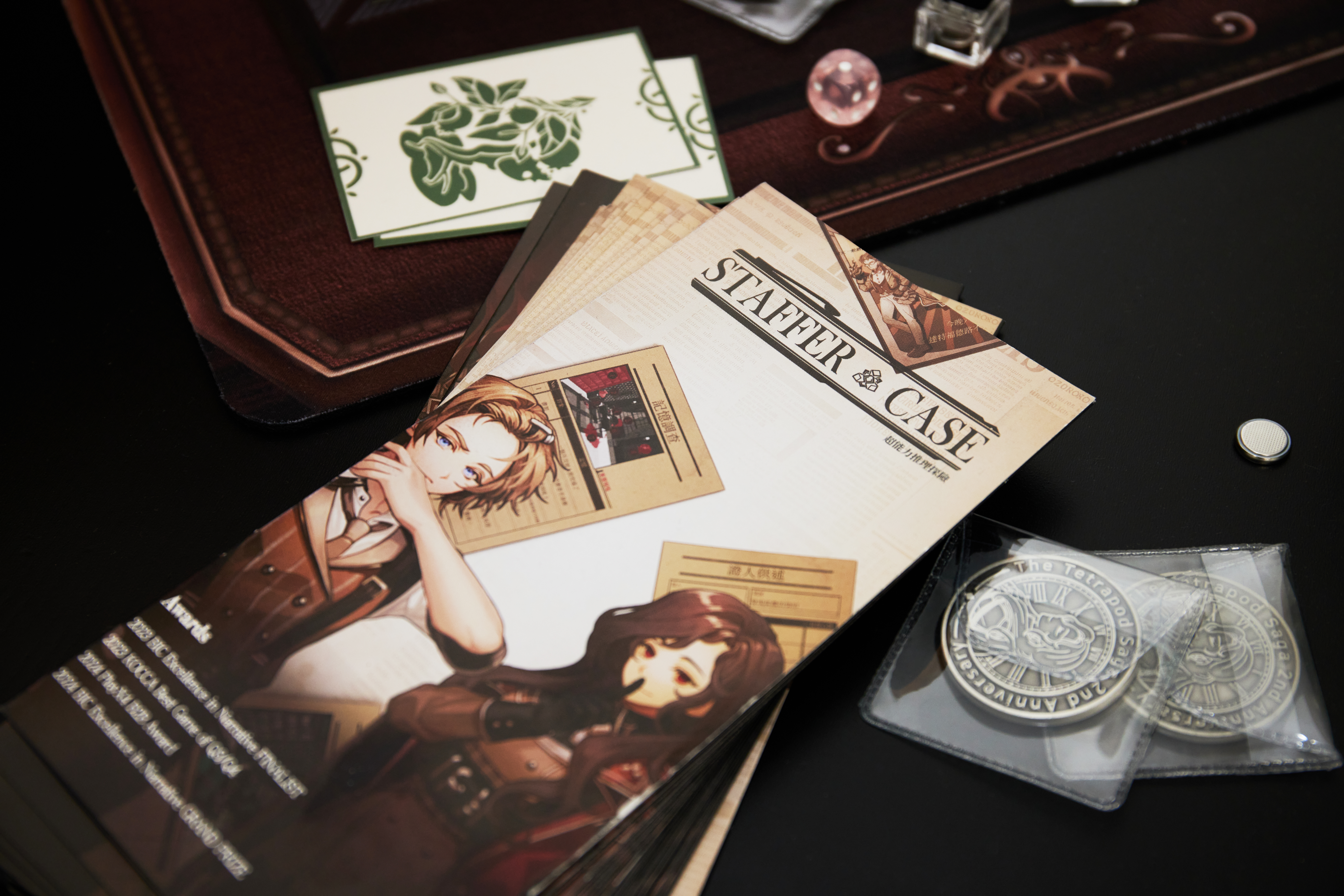
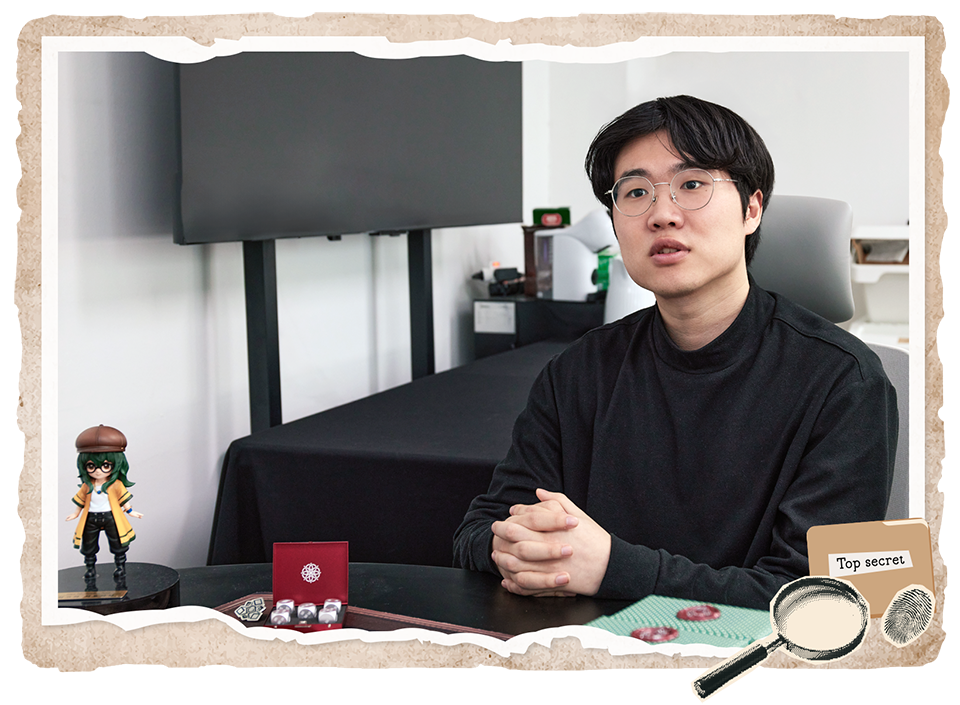
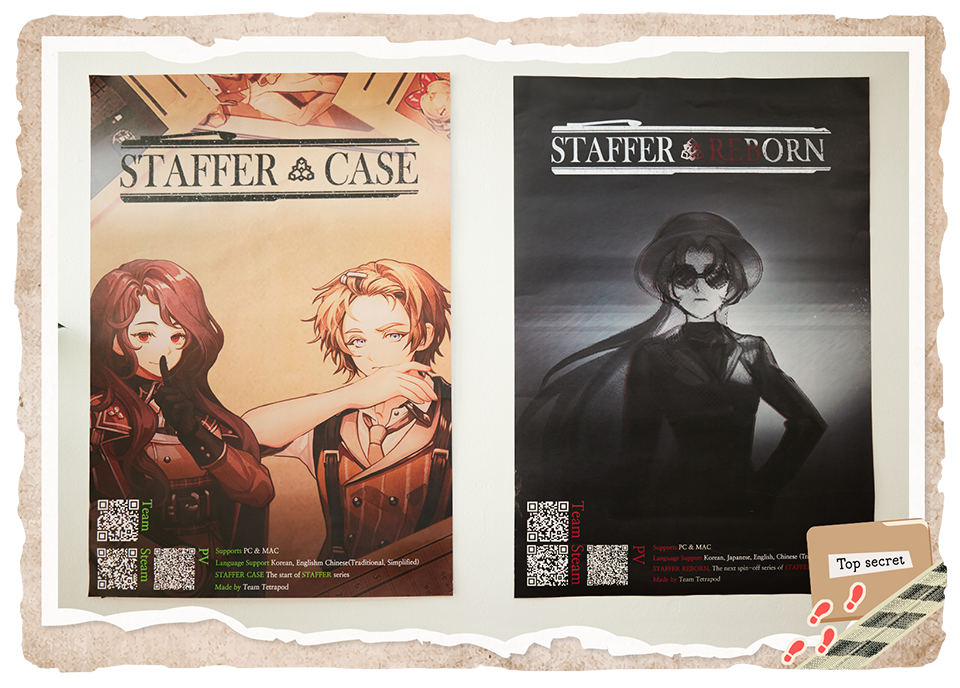
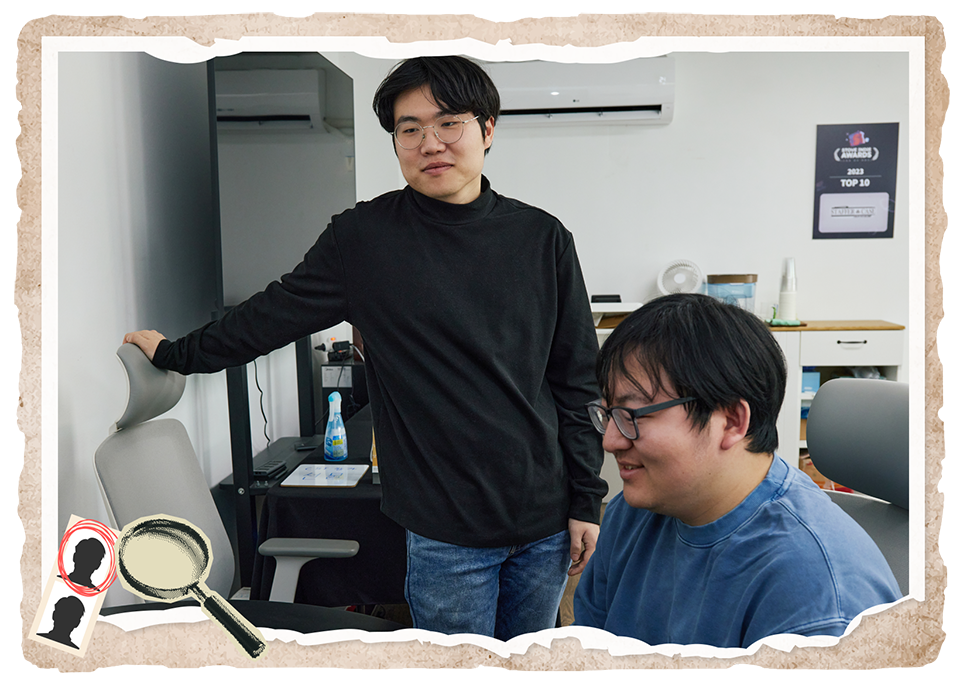
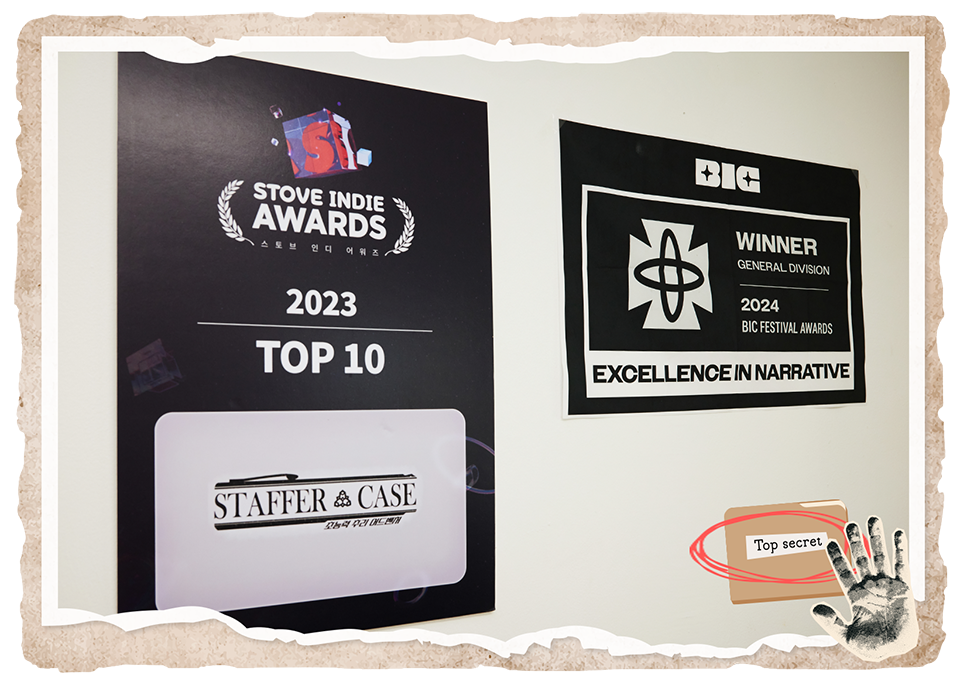
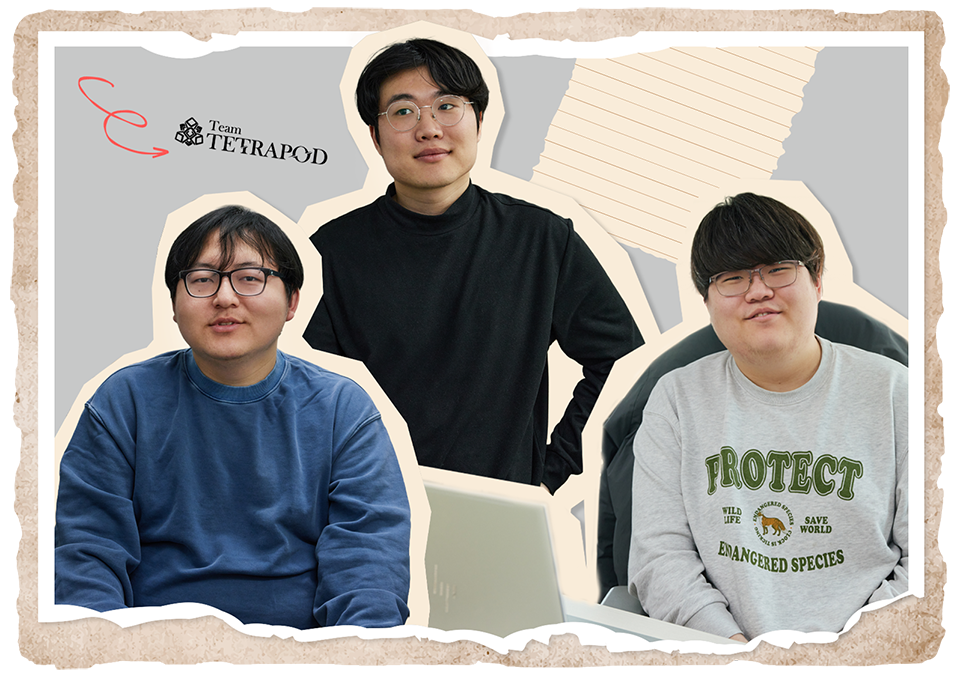
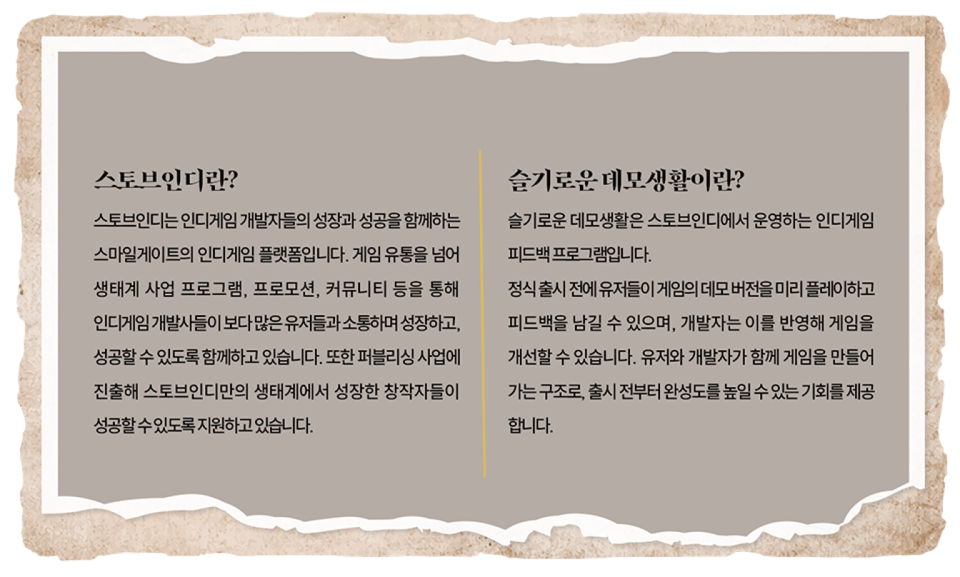
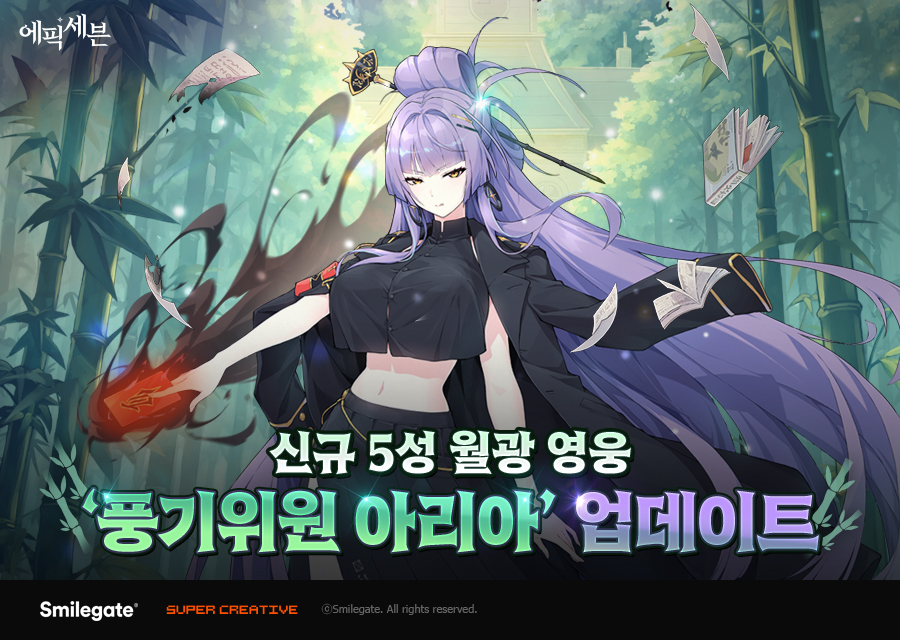

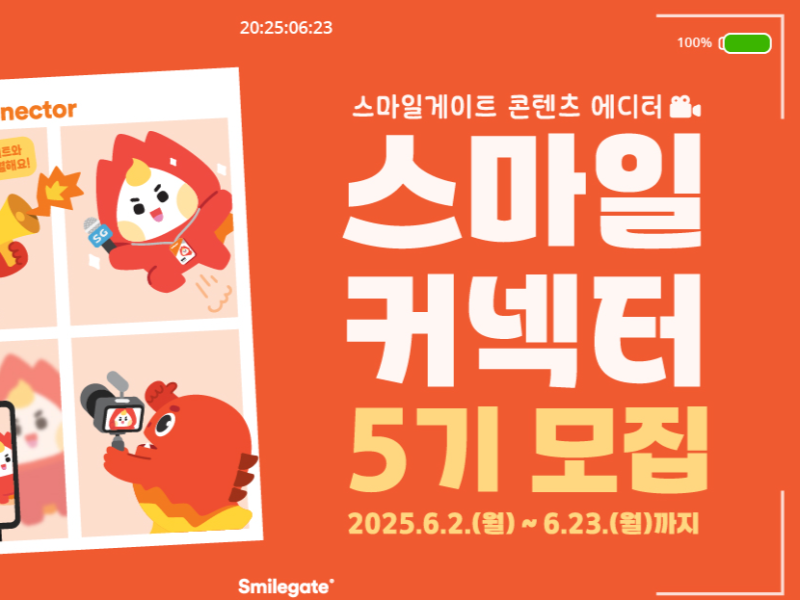

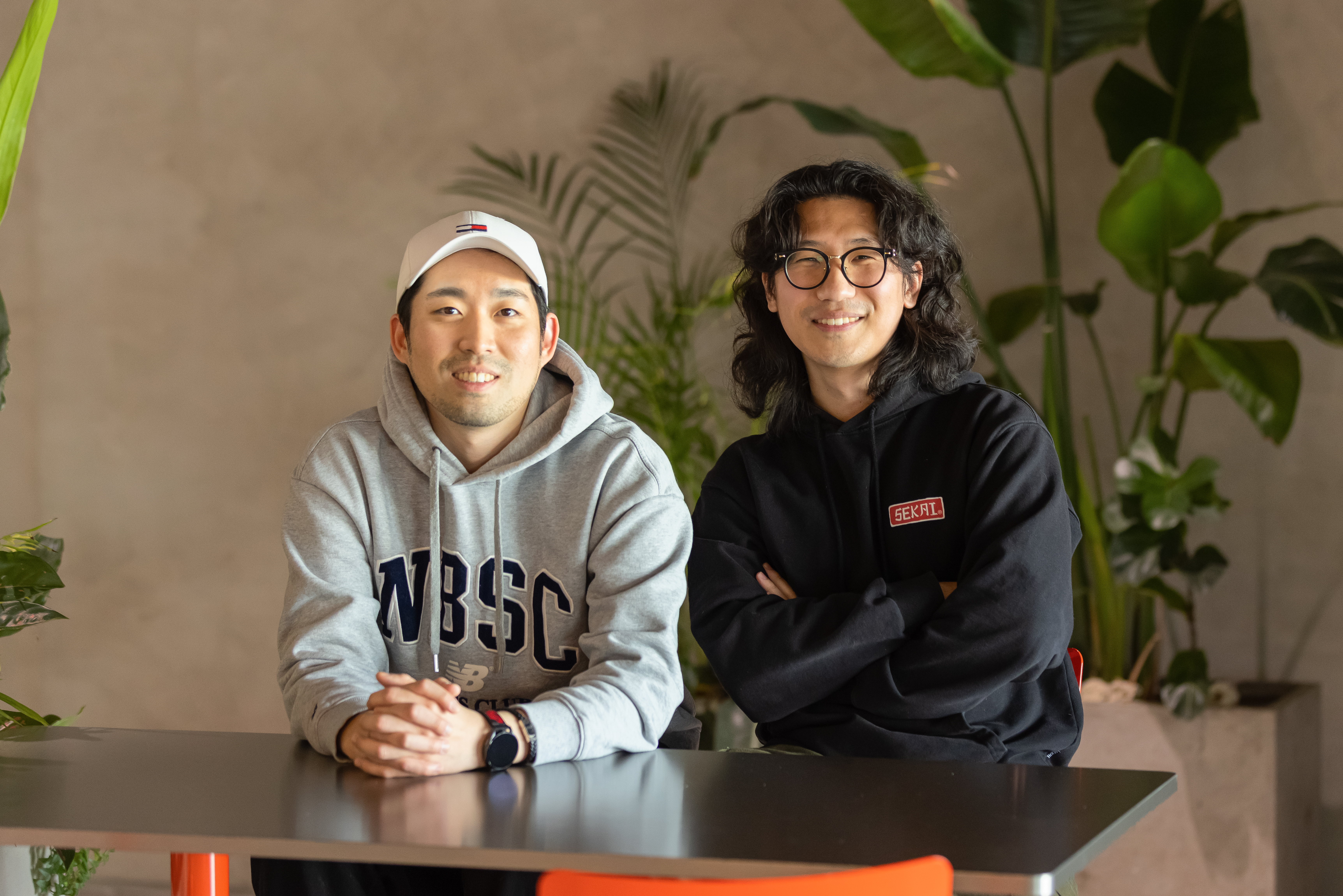


 TOP
TOP
